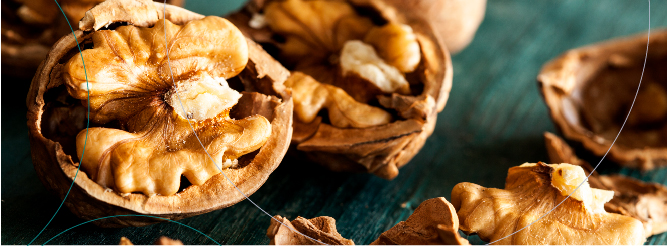
We’ve always heard that when it comes to beauty, it’s the inside that counts, and while this phrase is generally used to highlight a person’s emotional attributes or intelligence, it can also be applied to what we put in our body when it comes to food. It’s no secret that a healthy diet influences how our body functions and we can see the positive signs in different ways, from our digestion to our cognitive awareness. It can also impact our physical appearance, like our weight and the quality of our nails and hair.
Our skin also benefits from healthy food because like any other organ, it needs certain nutrients for it to have that glowy appearance. Of course, there are several factors that affect our skin that have nothing to do with food, like aging, sun exposure, and the weather. However, a balanced diet (and sunblock!) can help protect the skin against these factors so that it can be as healthy as possible.
Although switching the focus to healthy food for better skin is not a revolutionary take, it has become a more sustainable way to approach it in comparison to the products that the skincare industry offers. There are certain skin conditions that do require medical treatments, but there are other more costly, superficial solutions that can be replaced with a better diet. Each skin condition is different, so it’s important to contact your dermatologist so that they can guide you through the various treatments, as well as a dietitian that can help you learn about the food and water intake you need to improve your skin.
At LIMARP®, our team includes highly qualified nutritionists and dermatologists that can help you achieve having healthier, glowing skin. They’ll go over your specific case and establish a treatment and/or diet that benefits your type of skin and overall health. The condition of your skin can also be influenced by hormones, so even if you do follow your treatment word for word, you may see some blemishes due to them. In this article, we will focus on the factors that affect your skin, some changes you can implement to your daily routine, and a list of foods that can help improve your skin.
Factors for Skin Damage and Lifestyle Changes
As we previously mentioned, there are different factors that can affect your skin and one of them is aging. Of course, aging is a natural process that can’t be stopped, but there are ways to control how it happens. One of the factors that has a hand in how our skin ages is oxidative stress, which can be heightened by the consumption of high-processed food, sun exposure, and a high alcohol intake.
Another factor is inflammation, which can be caused by processed or fried food, resulting in negative impacts for the skin. A low water intake, aside from causing dehydration, can also lead to skin dryness, which reduces the size of the skin cells; this dryness can also be caused by certain bar soaps, dry weather, and high sun exposure.
Some of these factors can be avoided by applying changes to our lifestyle, such as cutting back on alcohol and processed foods, to being more conscious about the products we use to avoid irritating or damaging our skin. Next, we’ll present a list of foods that are known to improve the quality of a person’s skin. Keep in mind that it’s better to incorporate certain food groups into your diet instead of focusing on just one.
Good Food, Better Skin
- Focus on probiotics and prebiotics
A lack of probiotics can cause skin inflammation because the gut itself is inflamed, while adding food that are sources of high prebiotic fiber can improve your digestion. You can get a healthy intake of them from leeks, asparagus, kombucha, and garlic.
- Non-Dairy Milk
Because of the whey and casein found in dairy, there are studies that relate the consumption of skim and dairy milk to acne. Cutting off these food products won’t ensure totally clear skin, but it can reduce breakouts and blemishes.
- Berries
This food group includes blackberries, goji berries, cranberries, and all types of berries that are high in antioxidants and nutrients. They also contain vitamins A and C, which along with the antioxidants, benefit the skin greatly by preventing inflammation.
- Leafy Greens
You can find kale, broccoli, and collard greens in the food group, which are great for treating dry skin due to their levels of vitamin A. They also have vitamin C to combat the sun’s damage to collagen, and vitamin E, which works against inflammation.
- Fish
Fatty fish contain protein and amino acid that helps to thicken and protect the skin, as well as omega-3 and omega-6 to retain the skin’s natural oil. This prevents dryness and uneven texture on the skin. If you do not consume this type of food, you can find some of the same properties in nuts, especially walnuts.
- Cucumbers
Fruits are a food group that provide several benefits to our overall health, but cucumbers are especially good for our skin because they’re rich in water, vitamin C, and folic acid. You can either eat it or put it on your face to reduce swelling.
- Avocados
Avocados are a good oil source and also contain vitamin E, which protects your skin from oxidative damage. This type of food has proven to give a supple appearance to the skin because of the healthy fats it contains.
Contact Us to Learn More
If you’re looking to change your diet in order to improve your skin or want to know more about the different treatments, schedule an appointment with one of our doctors. We can help determine the right treatment for you. Contact us online anytime or give us a call at (619) 373-0229.


